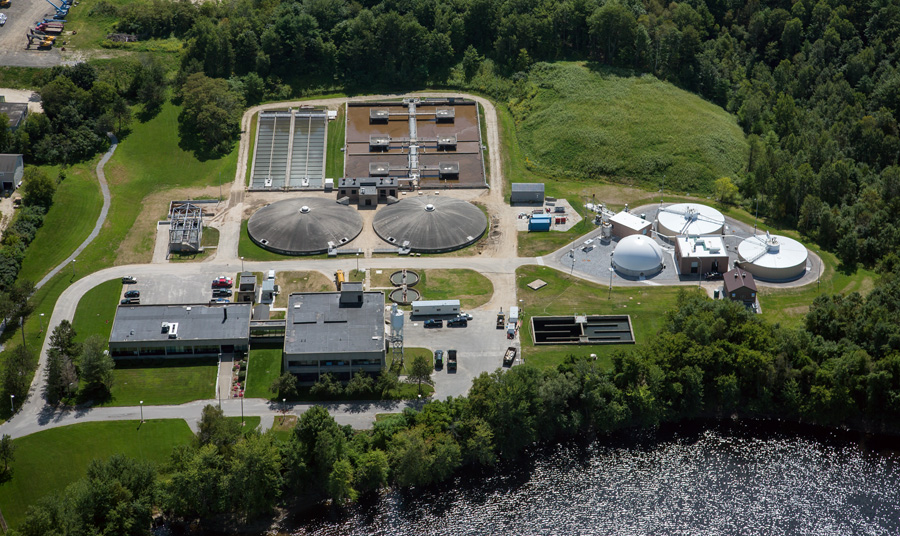Coordinating solutions to biosolids management and disposal.
Wastewater residuals or sludge is an organic solid, semi-solid, or liquid by-product of the municipal wastewater treatment process. Current end-use and disposal options include incineration, landfilling, and land application; all of which must comply with the Clean Water Act and regulations that are protective of public health and the environment.
The Issue

Emerging contaminants such as perfluoroalkyl and polyfluoroalkyl substances (PFAS) are impacting available capacity of sludge end use and disposal options and causing the loss of numerous sludge management alternatives. PFAS are used in a variety of items, including food packaging, firefighting foam, clothes, and cosmetics; and are now found in soil, drinking water and human blood. Studies have linked PFAS to health issues such as low birth weight and cancer. Concerns over contamination drove the state of Maine to pass laws banning the land application of biosolids.
PFAS are pervasive in our environment and, when discharged to sewers by industries and residential users, they accumulate at Water Resource Recovery Facilities (WRRFs) – also known as wastewater treatment plants. WRRFs were not designed to remove these chemicals, which ultimately end up being discharged to local waterways. More reliable and cost-effective sludge (biosolids) management alternatives are needed.
There are few approved, proven, or established methods to treat PFAS in wastewater or in biosolids on a large scale. Pilot studies have identified potential ideas, but these options are not yet fully scaled and may prove to be cost prohibitive.
What NEIWPCC Is Doing
NEIWPCC, in partnership with the North East Biosolids and Residuals Association (NEBRA) and Maine Water Environment Association (MeWEA), is coordinating discussions to address these pressing needs among stakeholders from Northeast states’ health and environment departments, numerous WRRFs, environmental consulting and law firms, universities, and national environmental organizations.
The concept for the Biosolids Technology Hub (BioHub) began as an idea for a research facility to test and prove PFAS destruction technologies’ effectiveness, but has since shifted to serve as an information clearinghouse on research and funding for piloting, planning, and permitting treatment of PFAS in municipal biosolids or sludge.
PFAS Sludge and Biosolids Treatment Resources
These summaries are crowd-sourced information intended to help regulators and clean water practitioners find solutions for PFAS-contaminated biosolids (sludge). Users should independently verify the information to inform proof of concept, demonstration, testing, design, and construction at physical facilities. See How to Get Involved to submit resource additions or edits. Materials will be updated periodically.
How to Get Involved
If you are a vendor, please provide technology requirements for us to share here.
If you are a WRRF interested in hosting a PFAS treatment pilot or a vendor seeking a WRRF host-site, please fill out the form here.
If you have information on projects, published literature, or technology descriptions, please provide resources for us to add here.
Questions? Please contact Jen Lichtensteiger.
